The following pictures show a polished Travertine kitchen and dining room floor at a house in the small village of Abthorpe near Towcester. The stone floor had lost its shine and had become dull and difficult to clean which was mainly due to the holes that had appeared in the surface of the Travertine where dirt had become ground in and trapped. This is a common problem with all Travertine stone, the holes are natural and usually filled at the factory but due to wear and tear over time and the use of acidic cleaning products the filler can become dislodged. The small holes gave the floor an unsightly appearance and become magnets to dirt.
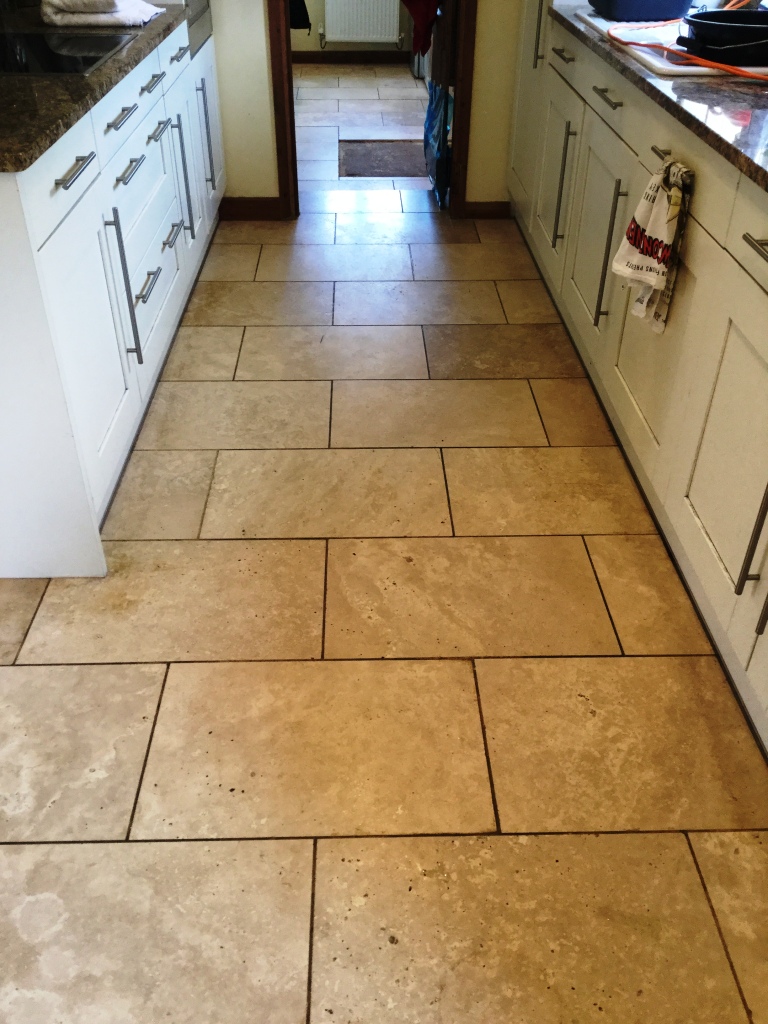
We find the best way to restore the shine is to apply a set of diamond encrusted burnishing pads, they take off the layer of dirt and then slowly build a resilient polish on the surface; however, to get the best results we would need to fill the holes in the Travertine.
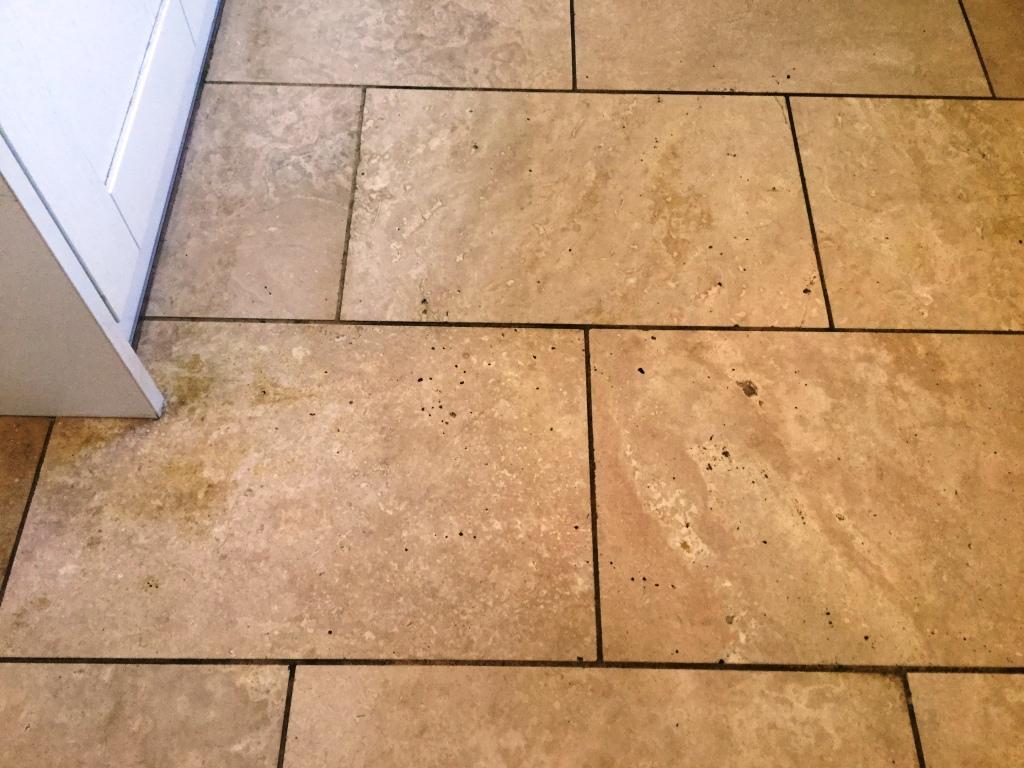
Burnishing and Cleaning a Travertine Tiled Floor
I gave the floor a sweep to remove any loose dirt and grit and started with the application of the first pad which is a coarse 400-grit and designed to remove minor scratches, old sealers and ingrained dirt. The pads fit a 17” buffer machine and is applied with water to lubricate the process, then once the pad has been applied to each tile the floor is rinsed with water and the resultant slurry is extracted using a wet vacuum.
Before moving onto the second pad in the set I gave the grout lines a clean with Tile Doctor Pro-Clean which was scrubbed into the grout using a stiff narrow brush. The pads can struggle to reach into the recessed grout lines, so I usually find this is the best way to get the grout clean.
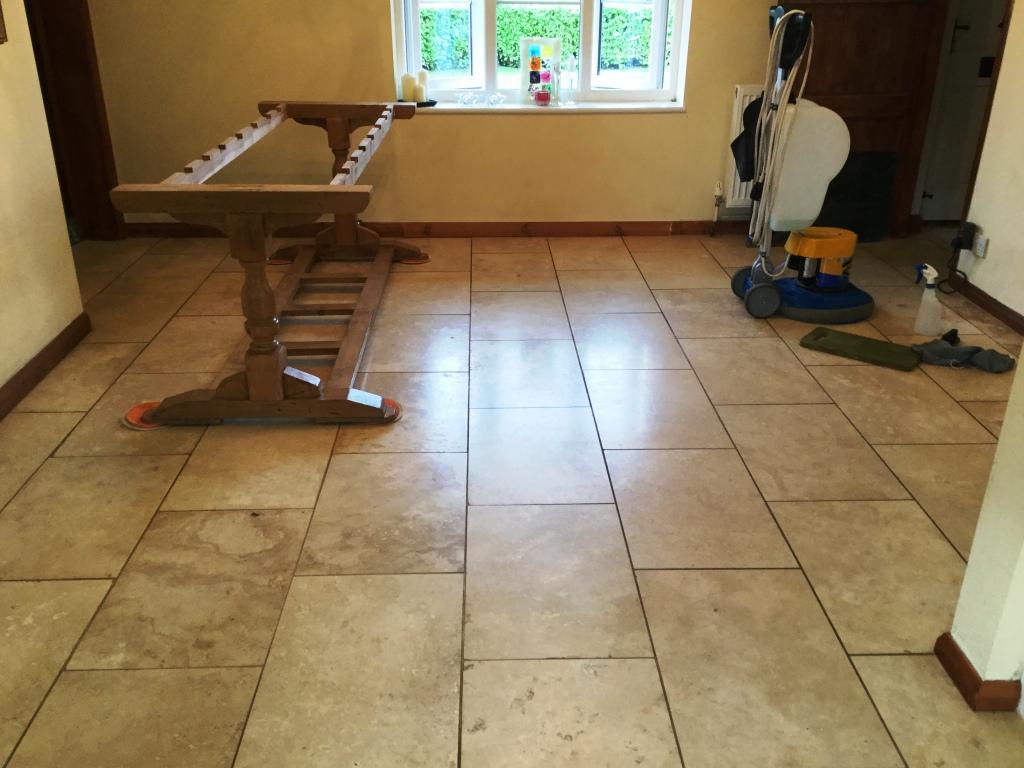
The floor was given another rinse with water and then I continued to work through the medium 800-grit and then fine 1500-grit pads rinsing with water and then extracting the slurry with a wet vacuum after each pad.
The Travertine was now clean and after drying with fans I commenced the task of filling the holes with stone filler that matched the natural colour of the stone as close as possible, in this case the colour we opted for to achieve the best match was Straw. These activities took up most of the day so once I was done filling I left for the day, so the filler and floor could dry out thoroughly overnight.
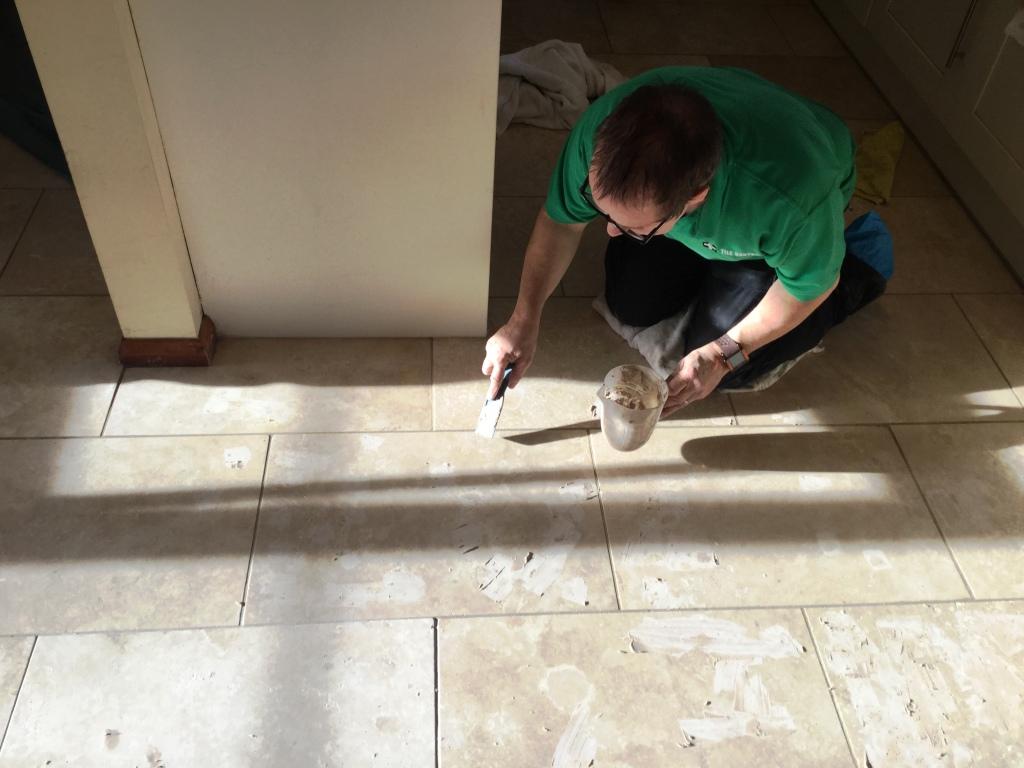
Sealing a Travertine Tiled Floor
I returned the following day and started by completing the polishing process by applying the last 3000-grit very fine burnishing pad with the 17” rotary machine, the pad is applied dry with a small amount of water sprayed on the floor as you go along. With the floor now fully dry and the filled holes polished flat the last step was to apply the sealer which will protect the floor going forwards.
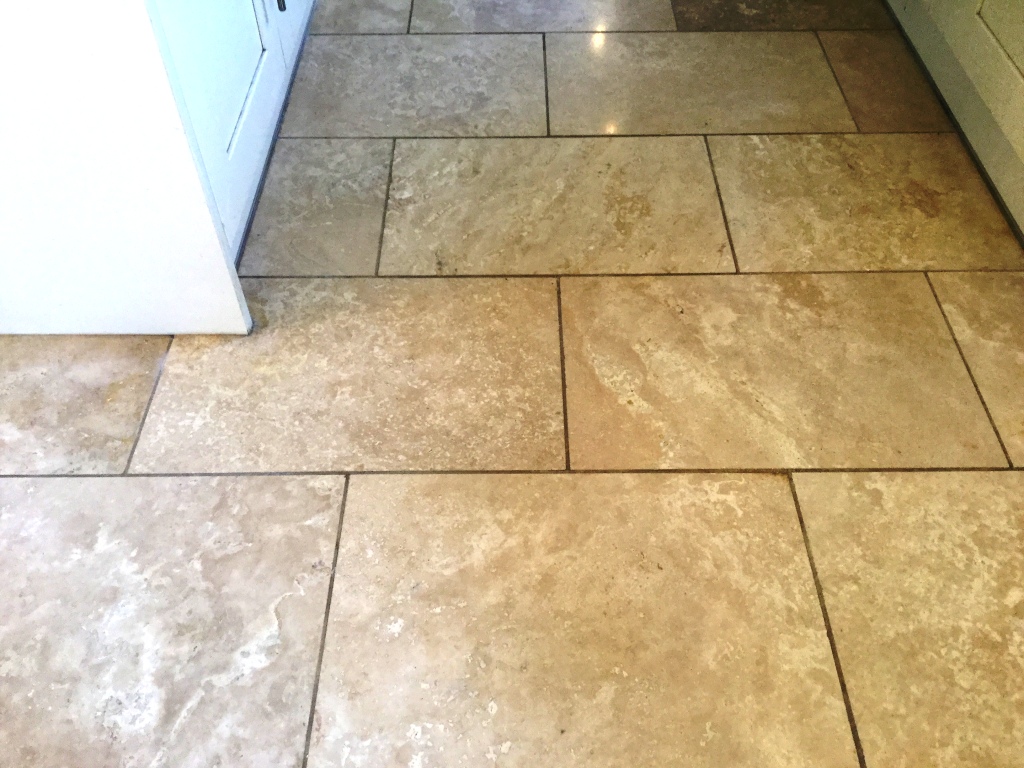
With Travertine floors I usually recommend Tile Doctor Colour Grow which is a colour enhancing sealer or Ultra-Seal which is a natural look sealer. On this occasion the client preferred the natural look, so I applied two coats of Tile Doctor Ultra Seal and along with the previous polishing the floor now look transformed.
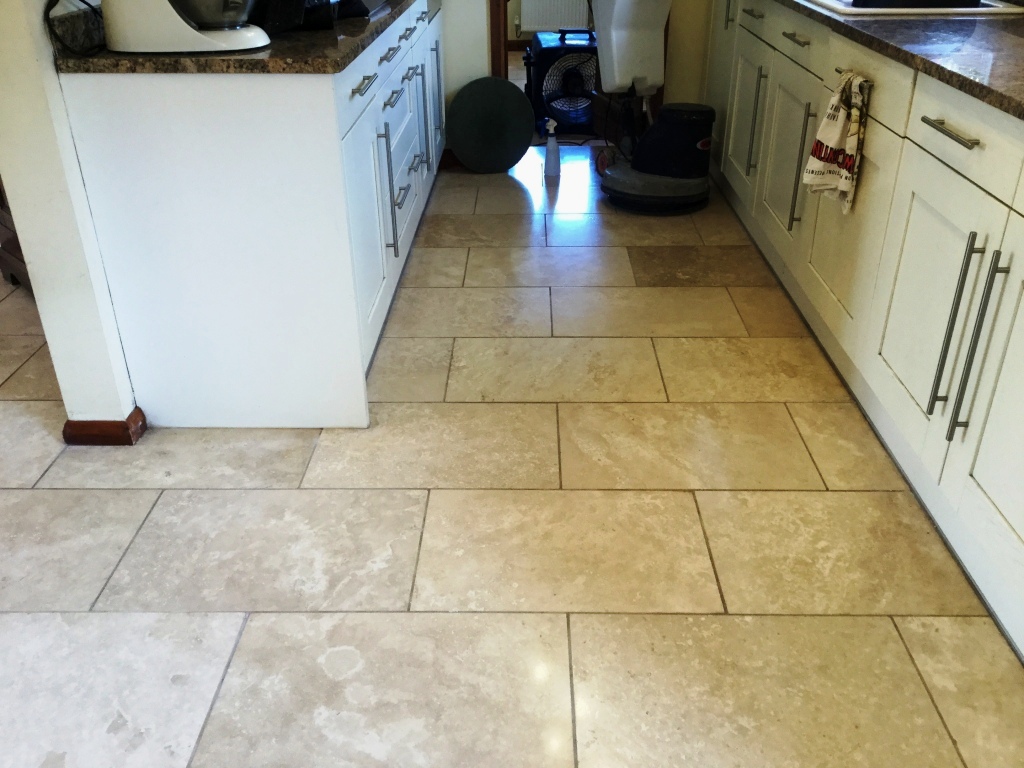
Source: Northants Stone Cleaning and Polishing Service
